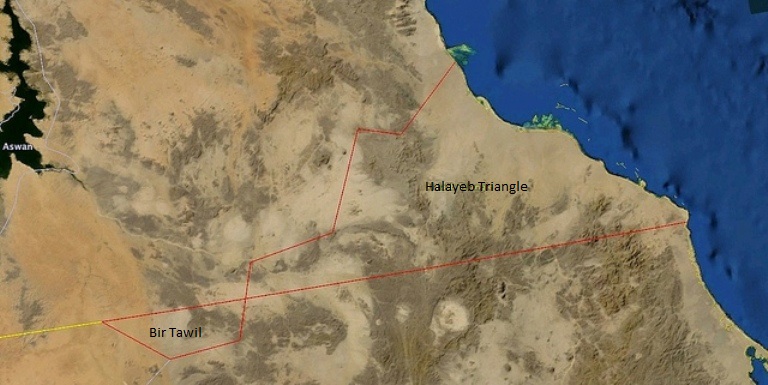Sudan reiterates sovereign rights over Halayeb triangle

June 7, 2017 (KHARTOUM) – Sudan’s foreign minister Ibrahim Ghandour on Wednesday has renewed his country’s stance on the disputed Halayeb triangle, saying the region is part of its sovereign territory.
The Halayeb triangle, which is a 20,580 km area on the Red Sea, has been a contentious issue between Egypt and Sudan since 1958, shortly after Sudan gained its independence from the British-Egyptian rule in January 1956.
The area has been under Cairo’s full military control since the mid-1990’s following a Sudanese-backed attempt to kill the former Egyptian President Mohamed Hosni Mubarak.
In a statement before the parliament Wednesday, Ghandour said Halayeb is part of Sudan’s territory, pointing his government continues to lodge a complaint against the Egyptian presence in the region at the UN Security Council annually.
He pointed that the two sides agreed to refer the Halayeb issue to president Omer al-Bashir and President Abdel-Fatah al-Sisi to decide on it, saying “we will resolve it either by direct dialogue or by international arbitration”.
For his part, the head of the Red Sea MPs bloc at the parliament Ahmed Issa Haikal said the actions of the Egyptian army towards the residents of Halayeb aims to provoke Sudan and drag it into war and to cover Egypt’s involvement in supporting Darfur rebels.
He told Sudan Tribune that they follow the measures taken by the Egyptian foreign ministry on Halayeb, adding “we assure the international community that Halayeb is Sudanese and its return is a matter of time”.
Press reports on Monday said the Egyptian authorities in Halayeb renewed detention of several chiefs from the Bishareen tribe for two weeks under the pretext that they smuggled and sheltered Sudanese citizens.
It pointed that Bishareen and Ababda tribes in Halayeb have complained about the improper treatment they have received from the Egyptian side.
Tensions between Khartoum and Cairo have escalated following the former’s decision to restrict imports of Egyptian farming products which was reciprocated by Cairo’s decision to raise residency fees for Sudanese living in Egypt.
The deterioration of bilateral relations between the two countries goes back to the attempt to assassinate President Hosni Mubarak in June 1995 followed by the deployment of Egyptian troops in the disputed area of Halayeb triangle.
Since then, Khartoum has been moving to improve its ties with the eastern and western neighbours, instead of its strategic ties with Egypt.
Khartoum further went to back the construction of a dam in Ethiopia, which Cairo says will hurt its water needs. Also, the Sudanese government recently signed investment agreements with Gulf countries. Accordingly, they will establish huge agricultural projects that require the full use of Sudan share of the Nile water, a move which is seen in Cairo as another threat to Egypt.
At a press conference following his meeting with al-Sisi in Cairo Saturday, Ghandour described the Sudanese-Egyptian relations as “sacred”, saying official relations could get tense sometimes but “we have to maintain ties between the two peoples”.
(ST)
